One issue members of the unit have faced is a deliberate stovepiping of information when they have tried to bring in outside experts on subjects like advanced marksmanship training. “So on some occasions I had to do it on my own and arrange things inside my team, trusting my buddies’ secrecy,” an Italian SOF operator told SOFREP. “My opinion is that information restrictions apply according to the people who decide for it and according to the situation… it can be used as a barrier to stop projects if some people don’t want them to be started,” he continued, referring to how OPSEC can be used as an excuse to shut down training or an exchange of information which could be beneficial to the unit.
One bright spot mentioned by the European SOF soldiers interviewed in this article is that they feel that their weapons and equipment are up to date and adequate for the most part. The only complaint was that the acquisition process could be carried out in a fair manner. “You know that Italy has a great array of equipment and weapons industries… I don’t want to say that all they build is crap, but if a contest is established [for equipment acquisition] then it must be conducted with full neutrality,” the soldier commented. “I guess that it is a common problem in all SOF worldwide. They push for some specific material or weapon system especially during contests where different systems are tested and evaluated. Most U.S. brothers have confirmed the same during contests in SOCOM testing.”
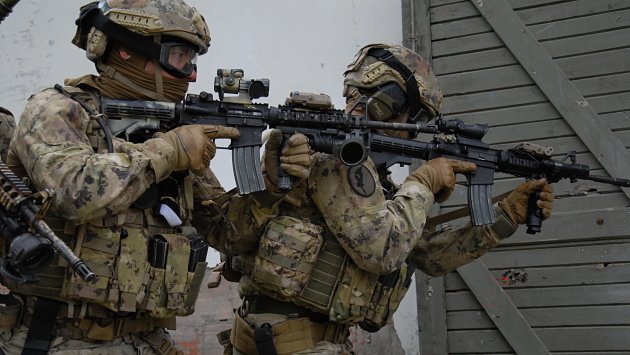
In American Special Operations there is a clear-cut career track for those wishing to join. The path to attend an assessment and selection course, joining a SOF unit, and subsequent career progression is made obvious to U.S. soldiers. This is not always the case with our allied units.
In recent years, Italian Army SOF was blended into an Airborne Brigade while Naval SOF was blended into the 5th Fleet. “With [a] specific focus on our high officers, the [operators] had poor acknowledgment of their status, and because they missed important stages to climb up the chain of command due to operations and SOF specific courses they saw their career slow down,” the Italian counter-terrorism soldier explained. However, Italian SOF is still in the process of undergoing reorganization, so these issues may be rectified in the future.
Greek Zeta Maritime Commandos
Greek SOF units also face their own challenges: Like many European military units, they are often judged by historical events which happened decades ago, some of which are not a part of living memory any longer. “The public perception [is] that volunteering for [service] in SOF takes some kind of overzealous nationalist,” Vasilis Chronopoulos, who served in the Zeta unit, told SOFREP. “On the contrary, with most people I met, although national pride was a reason, it was not the main one. Most wanted to have a more interesting national service or to test themselves.”
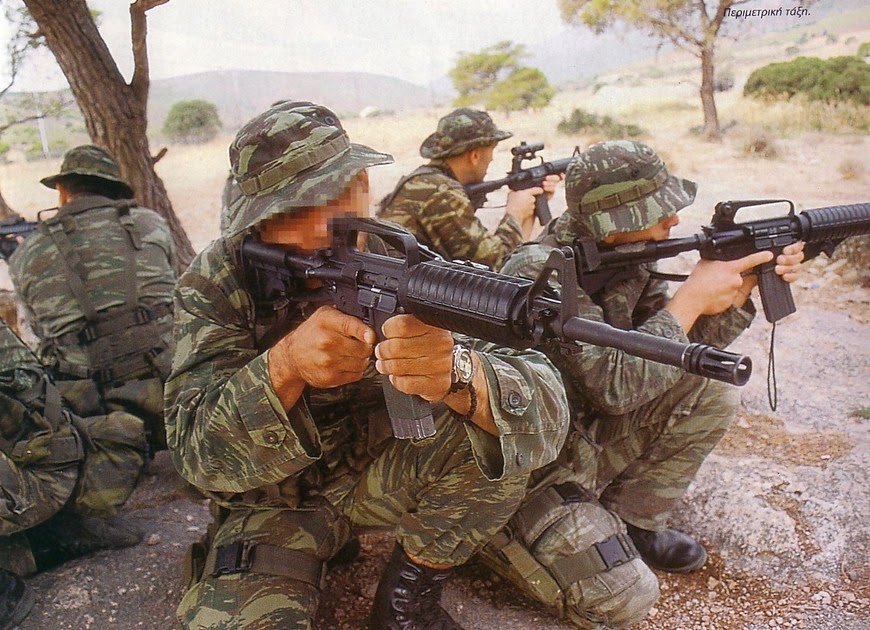
“With a national service system, as we have in Greece, many people simply don’t want to be there and they use any means to get a comfy post/assignment. So when you volunteer you are like the sucker, willing to have a bad time while others skate the whole deal,” Vasilis said. “Now, if you choose that as your profession too, oh boy, this is when the party starts. Now you are a fascist trained killer, good for nothing. I had a guy I had met in like two minutes before asking me ‘hey what do you do for a living?’ I said that I am in the army, ‘oh, so you are a fascist’ he replied.”
“50 years of left versus right polarization leave little room for the truth and most people simply recite old clichés and ideas about what SOF is about,” Vasilis recalled of the Greek experience.
Denmark’s Jaeger Corps and Frogman Corps
The tiny nation of Denmark has made a contribution to the War on Terror that shows that the Danish are able to punch way above their weight class. Some of the details of Danish Jaeger Corps operations are told in Thomas Rathsack’s memoir, “Jaeger.” Other exploits, like that of Jaeger Corps members calling in airstrikes during Operation Anaconda in Afghanistan, have yet to be written.
American SOF went through a massive reorganization in the wake of Eagle Claw, the failed mission to rescue American hostages held in Iran in 1980. The Goldwater-Nichols Act led to the creation of SOCOM, a command that acts as an umbrella containing Army, Navy, Air Force, and Marine Corps SOF units. This type of structure has yet to be adopted in many European nations, however.
“On the contrary looking at the European and especially small countries SOF units like Denmark or Belgium for an example, the story is completely different,” one Danish veteran said. He has the unique insight of being the only Dane to have served in both Jaeger Corps and the Frogman Corps. “SOF units in Europe were developed in the wake of WWII and were placed under, respectively, the Navy and Army. [That] made sense at that time due to the purpose of SOF units in a full conventional war between East and West. However, today, there is a high demand for SOF units and a complex operational environment that requires a different organization and a joint operational approach.”
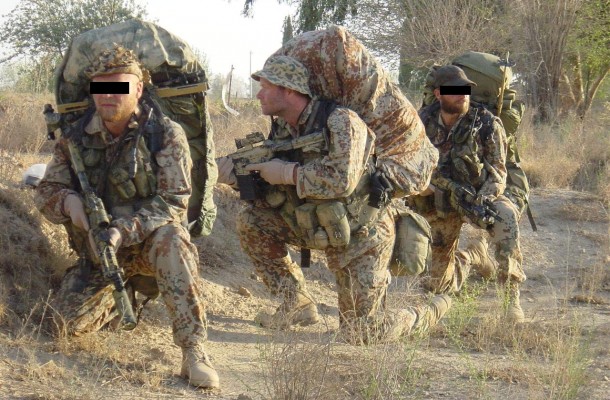
Only in recent years has the European SOF community began setting up its own separate commands, such as Norway did in 2014 and Denmark is in the process of doing.
As in Italy, Danish SOF suffered from a stigma, “the perception of SOF was that it wasn’t a place where people could [have] a career,” the Danish SOF veteran said. “Moving up from being an operator to tak[ing] leadership positions quickly became narrow spaced and advancement required to move out of the SOF environment and maybe at some point return, but then again move out as the highest positions only reached the level of Major or Lieutenant Colonel.” This creates the following problem, as he explained: “SOF [is drained] from its leadership talents. Moreover, the NCO positions are also very limited due to the small structure of SOF units and the loss of good people after a number of years.”
In Denmark, they have also had some equipment and resources issues. “Being from a small unit with a narrow budget I’ve found myself wondering why we didn’t even have the proper shooting facilities or why I had to wear old mono goggles doing CQB at night. On the higher level it was frustrating to experience being short of vehicles or adequate air assets to complete the complex training and operations required,” the Danish SOF operator said, although it should be noted that Danish SOF is none the less the envy of many other European SOF units, including the Swiss DRA-10 operator whom we spoke to.
Swedish Army Jaegers and SOG
As a non-NATO member, Sweden recently combined its Maritime SOF unit (SSG) and its Army SOF unit (SIG) into one unit called SOG. This would be the equivalent of the U.S. Department of Defense merging SEAL Team Six and Delta Force. Recent deployments have taken SOG to Afghanistan, Chad, and the Central African Republic.
“As the Afghanistan war phased out, another huge blow struck the Swedish Jaeger community as the Special Operations Group (SOG) was merged from SSG and SIG. The Jaegers lost a large part of their staff, their role, and even some capabilities.” Officially, the Jaegers had the direct action mission taken away from them and given to SOG, a unit with perhaps 100 actual operators in it. It was not long before the deployment cycle began to wear on the small unit. Meanwhile, the Jaegers were assigned the mission of Special Reconnaissance, a politically correct mission that Swedish politicians were comfortable with. “Being left with a proud history, the Jaegers, especially the Para-Rangers (FJS) were struggling to find a new identity and role within the semi-regular forces,” a former Swedish Jaeger told SOFREP during an interview.
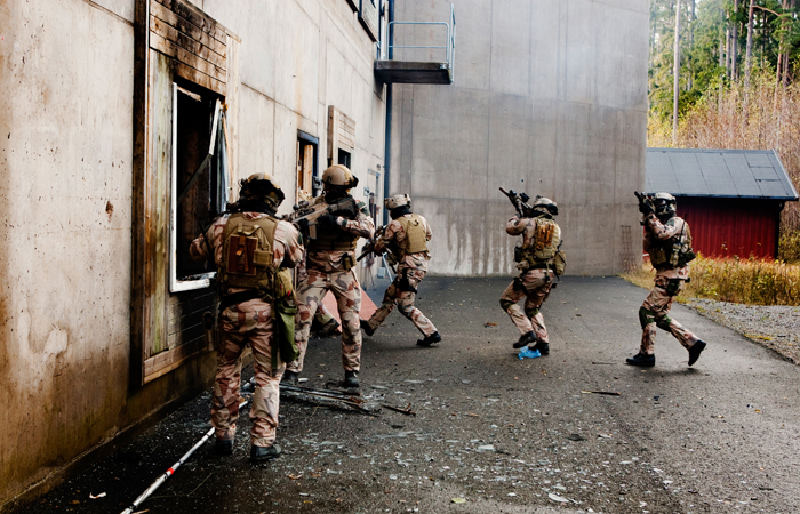
“Today Marine coastal Rangers and Army Para-Rangers make up a sort of Tier 2 unit, but both units are currently lacking a real combat operation like Afghanistan, but have been busy anyway. Marine Coastal Rangers have been doing a lot of Special Reconnaissance operations in the Baltic Sea and archipelago while the Paras have been engaged with long-range recon operations at the U.N. mission in Mali.”
With SOG overworked and the Ranger (Jaeger) units being downgraded due to hand wringing, navel-gazing politicians, the future of Swedish SOF is uncertain, even with a resurgent Russia just a stone’s throw away.
The Netherlands’ KCT
The Netherlands is a small country with a population of around 17 million people. Like many European countries with populations and economies much smaller than the United States, it struggles to train, equip, and field Special Operations units. “The Dutch Department of Defense opts for a force that can be deployed in a broad spectrum of operational use and thus can perform many tasks,” Bjorn Cals, a former Dutch KCT operator described. “Out of financial necessity, this ambition was lowered: [besides] small missions and tasks of national defense, there can only be one larger operation at sea, land, and performed in the air.”
Yet, on any given day, the Dutch are training Peshmerga in Kurdistan, collecting intelligence in Mali, conducting counter-piracy operations off the coast of Africa, and Dutch F16s are bombing ISIS on top of the Netherlands participating in over a half dozen different peacekeeping missions. Add to that their domestic counter-terrorism and national security missions.
Jeanine Hennis-Plasschaert, Holland’s first female Minister of Defense, has been working to overcome many of the issues that her nation’s military, including Special Operations Forces, face. She was one of the first to talk publicly about how the Dutch military was over-extended. “She is the first minister of defense to bring a counter-balance in our administration. Gradually, she is raising more military awareness in the government. As a result, she’s already getting [fewer] budget cuts and more space to create more overall strength than her predecessors did,” the KCT veteran said.
“[Dutch] SOF returning from Mali do have to hand in all their mission gear and give it to the next rotation. Dutch defense is struggling with low ammo stock, and so on,” Cals continued. “Therefore, she waves a big red flag and is lobbying for more money instead of cuts.”
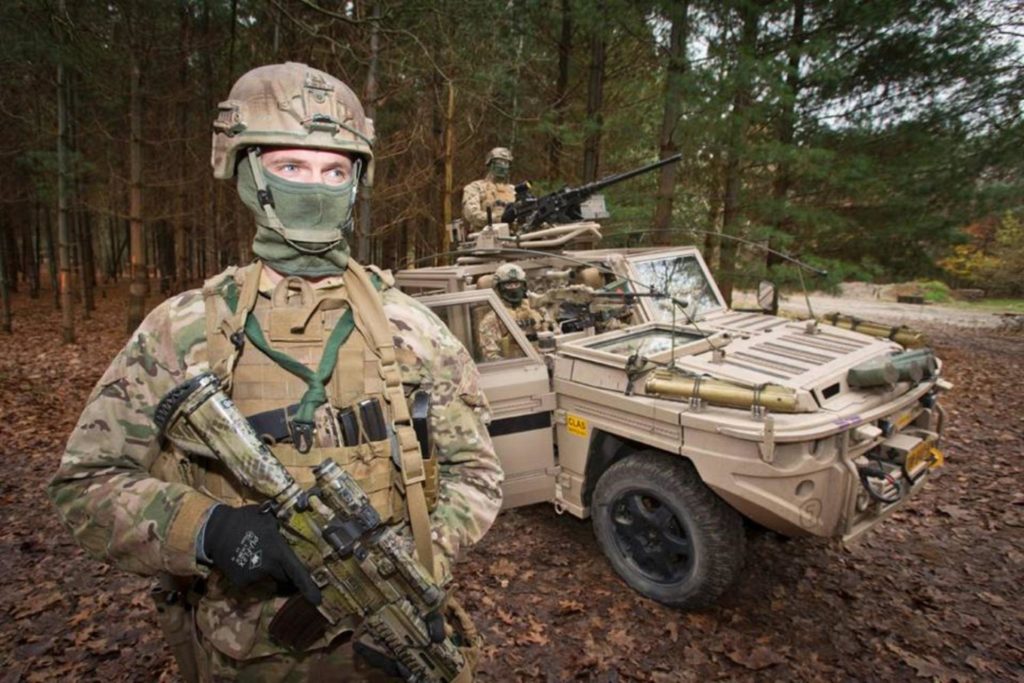
Cals opined that “the downing of the Malaysian airliner MH17 on July 17th, 2014 above the Donetsk region of Ukraine, in which 198 Dutch citizens died, the terror bombings in neighboring France and Belgium, the Ukraine-Russia crisis, war in Syria, unstable situation in the horn of Africa, and the flooding of Europe with immigrants is surely helping a lot in creating defense awareness within the Dutch government.”
Conclusion
Many of the issues that European SOF face are very similar to what their American counterparts are challenged with including an equipment acquisition process which is often broken, siloing off of information into separate compartments, and difficulties in veterans transitioning to civilian life.
But other issues are more unique to the European experience including fascist historical legacies which frighten the public, a career track that has not been fully professionalized, massive political sensitivities unique to shaky European coalition governments, and difficulties for small countries to fund their SOF units and meet NATO obligations. Other countries like Switzerland or Sweden struggle with domestic policies such as neutrality, or overall political trepidation about any type of military deployment.
“When deploying a SOF contribution to a coalition in an international environment a very big support structure [is required] all the way from staff people to intelligence and assets. From my perspective it’s always been a matter of finding a place to put us where we could join other partners and dig into their assets, intelligence, and support,” a Danish Jaeger Corps and Frogman Corps veteran said.” Naturally, this means you end up lower in the food chain and thereby don’t get the maximum effect out of the units’ capabilities. The feeling of being all dressed up and no one to dance with has struck me on multiple deployments.”
Countries like Denmark and Italy have made efforts to set up their version of Special Operations Command, but great difficulties face European SOF in the years ahead.
“Western Europe is really struggling to find a balance in terms of security,” the Dutch KTC operator said. “Most countries won’t be able to provide a safe defense of their own territory let alone to fulfill their NATO commitments.”
Amongst European SOF, more can be done to help pool resources and build capabilities between units, perhaps even share responsibilities. With large supranational structures like the European Union and NATO already in place, one would think that this would not be such a challenge. Bilateral and multinational exchanges and training exercises already take place, but with some countries too small and other too unwilling to fund a European-wide Special Operations network, it seems that they will not be able to build anything that truly resembles SOCOM and the much-needed capabilities that are unique to U.S. SOF, such as aviation components like 160th SOAR.
Yet, something like the idea in Tom Clancy’s “Rainbow Six” of Atlas Group that is used to standardize training and equipment of and conduct joint counter-terrorism missions by European SWAT teams could potentially be a solution. Perhaps the NATO Special Operations headquarters could play a leading role in such an endeavor.
This article was written by Jack Murphy in 2016. </emno

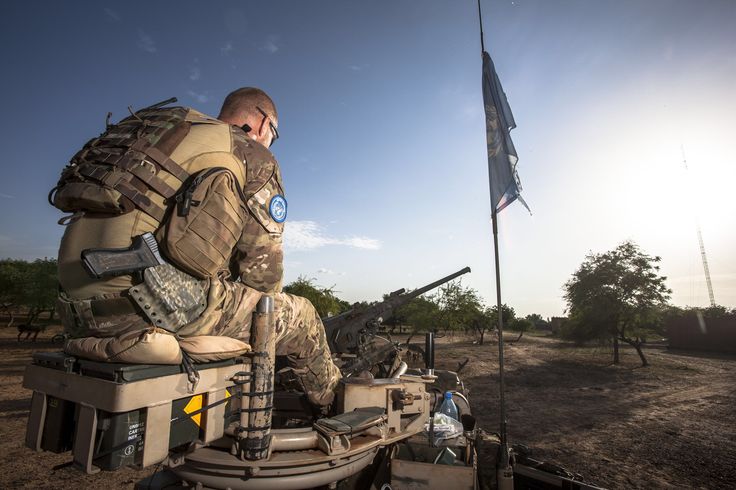
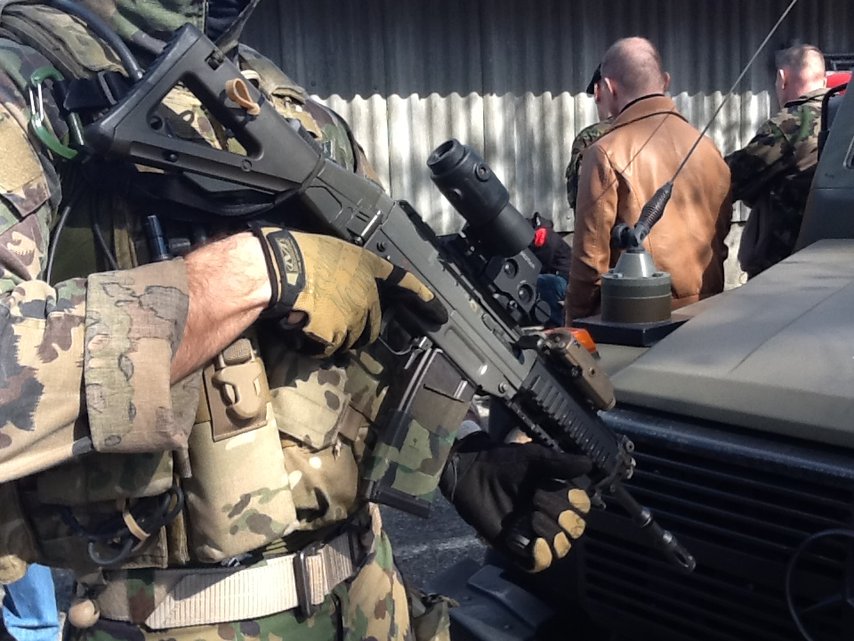








COMMENTS